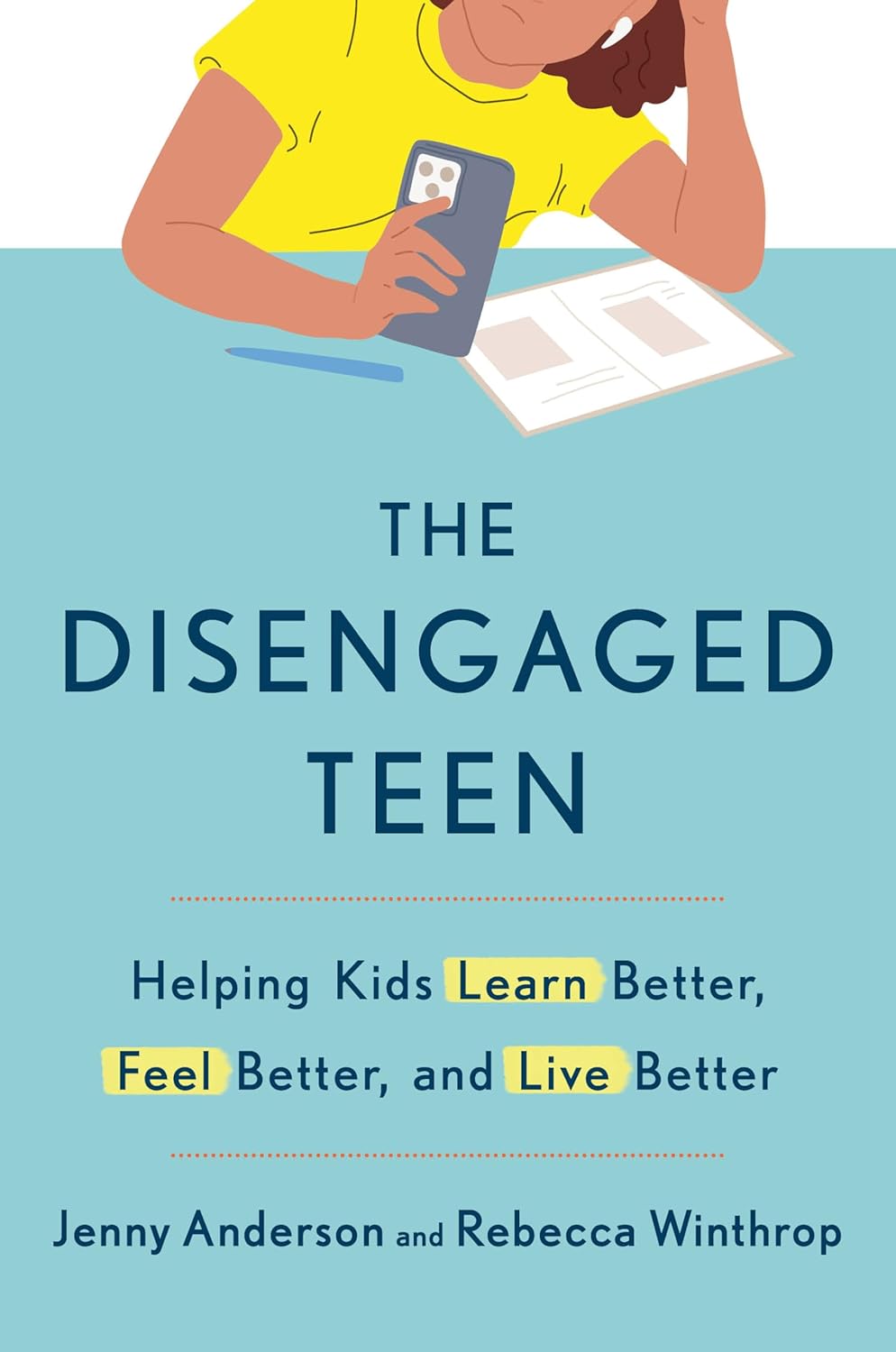
2025

Book
A powerful tool kit for parents of both checked-out and stressed-out teens that shows exactly what to do (and stop doing) to support their academic and emotional flourishing.
Adolescents are hardwired to explore and grow, and learning is mainly how they do this. But a shocking majority of teens are disengaged from school, simultaneously bored and overwhelmed. This is feeding an alarming teen mental health crisis. As kids get older and more independent, parents often feel powerless to help. But fear not, there are evidence-backed strategies to guide them from disengagement to drive, in and out of school.
For the past five years, award-winning journalist Jenny Anderson and the Brookings Institution’s global education expert Rebecca Winthrop have been investigating why so many children lose their love of learning in adolescence. Now, weaving extensive original research with real-world stories of kids who transformed their relationships with learning, they identify four modes of learning that students use to navigate through the shifting academic demands and social dynamics of middle and high school, shaping the internal narratives about their skills, potential, and identity:
Understanding your child’s learning modes is vital for nurturing their ability to become Explorers. Anderson and Winthrop outline simple yet counterintuitive parenting strategies for connecting with your child, tailoring your listening and communication styles to their needs, igniting their curiosity, and building self-awareness and emotional regulation.
2025
The Brookings Institution, Washington DC
Thursday, 2:30 pm - 3:45 pm EST
Authors

Related Content

Rebecca Winthrop, Jenny Anderson, Erin Thomas
January 6, 2025

Emily Markovich Morris, Laura Nóra, Richaa Hoysala, Max Lieblich, Sophie Partington, Rebecca Winthrop +1 more
February 20, 2025

Jennifer S. Vey, Rebecca Winthrop
June 6, 2019